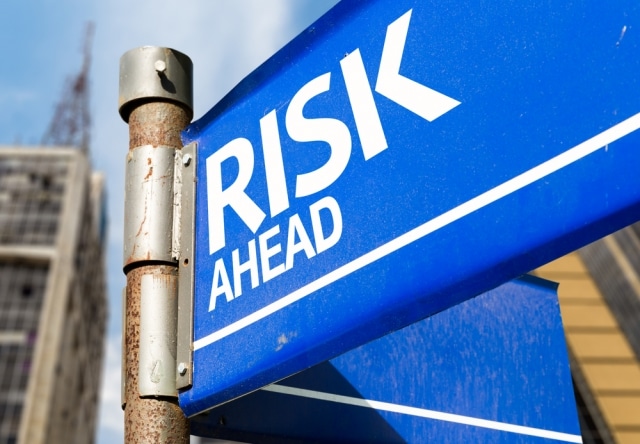At a climate change conference in Paris last week, Fatih Birol, chief economist at the International Energy Agency, had a blunt message for energy companies.
“We see some moves from energy companies in the direction of sustainable development. However, it is not at the level you would like to see,” Mr. Birol, who will be promoted to chief of the IEA in September, told those assembled. “If they think that their businesses are immune to the impacts of climate policy, they are making a strategic mistake.”
Other experts sound a similar note, calling for changes so fast and sweeping that they would be like an “induced implosion.”
“In order to stay below 2 degrees C (36F), or even 3 degress C, we need to have something really disruptive, which I would call an induced implosion of the carbon economy over the next 20-30 years,” Prof. Hans Joachim Schellnhuber, founding director of the Potsdam Institute for Climate Impacts Research and advisor to Pope Francis and the German government, said the next day. “Otherwise we have no chance of avoiding dangerous, perhaps disastrous, climate change.”
“A mixture of many different changes going on – consumption patterns, civil society, political action – will be disruptive to the carbon economy,” Nobel prize-winning economist Joseph Stiglitz added at the conference that day, as he dismissed the notion that voluntary measures could be effective. “The atmosphere is a public good – all want to get the benefits, but no one wants to pay the cost.”
In the realpolitik world of investing and economics, a slowly-emerging awareness of the need to take steps to mitigate climate change seems to be emerging — making fossil fuel investments look not only hazardous to the climate, but also turning long-time blue chip stocks into investments that look uniquely financially risky.
As low prices and high costs have hammered the oil and gas drilling industry, an increasing number of experts and institutions are scrutinizing the industry’s short- and long-term viability in unprecedented ways.
A Wave of Bankruptcies
Federal banking regulators have begun warning lenders that many of the loans made to drillers at the height of the shale rush must be treated as “substandard” — indicating an increased risk that companies will default and fail to repay loans or that the regulators doubt that the oil and gas reserves backing the loans will really prove to be worth what borrowers claimed, according to the Wall Street Journal.
Meanwhile the list of bankruptcies within the oil and gas drilling industry is growing, and the auditing industry is taking note. “In late March, Moody’s Investment Services added 25 oil and gas-companies to its watch list of most financially stressed firms, double the usual number,” Ryder Scott, an oil and gas auditing firm, wrote in its quarterly newsletter. “Quicksilver Resources Inc., Dune Energy Inc. and BPZ Resources Inc. filed for Chapter 11 bankruptcy protection in March. Samson Resources Corp. said March 31 that it may seek Chapter 11 bankruptcy reorganization.”
All told, drillers have taken on debts adding up to more than $235 billion — meanwhile their revenues are shrinking fast due to low oil prices.
But it’s not just low prices that have created this debacle. “The problem for shale drillers is that they’ve consistently spent money faster than they’ve made it, even when oil was $100 a barrel,” Bloomberg reported last month. “The companies in the Bloomberg index spent $4.15 for every dollar earned selling oil and gas in the first quarter, up from $2.25 a year earlier, while pushing U.S. oil production to the highest in more than 30 years.”
The oil and gas industry has historically far out-earned what it spent, giving more than enough cash to fund more drilling out of its own pockets. But for many companies — especially the smaller wildcatters that have stoked enthusiasm about shale drilling even while the majors like Royal Dutch Shell renounced it as a money-loser — the current drilling boom is fueled by debt.
But that debt looks increasingly risky, as a wave of credit downgrades and lowered financial outlooks have swept across the industry. A May report by Standard and Poors found that fully one third of the world’s three dozen corporate debt defaults this year were by oil and gas companies.
The Long Run, Starting Today
In April, HSBC issued a research note warning of growing financial and “reputational” risks for those who continue to invest in oil, coal and gas companies and advising its investors to protect themselves against the risk of so-called “stranded assets.”
“In the context of fossil fuels, [stranded assets] means those that will not be burned – they remain stranded in the ground, ” the research note explained. “We believe the risks of this occurring are growing.”
A major international think tank also focused on the risk of stranded assets in a report published last week, citing the combination of low oil prices, geopolitical factors that made it likely prices would stay low, and upcoming climate talks as reasons to doubt the core viability of the oil and gas industry’s future.
“The difference between the oil (or gas) that would remain in the ground in any case (that is, without strong policies) and what would remain if strong policies were adopted is, in effect, the volume ‘in limbo’ – in other words, the reserves whose future is uncertain,” researchers from Chatham House wrote.
If investors continue to pour money into pursuing assets that will wind up stranded, they stand to lose enormous sums of money. The International Energy Agency estimates that two-thirds of currently expected energy reserves can never be sold and burnt if climate deals are to be kept — adding up to $28 trillion dollars by 2100.
For some, the idea of leaving all that money on the table is galling – but the financial costs of a severely changed climate are incalculably higher. Promoting “climate-smart” investment would generate up to $2.6 trillion a year by 2030, the World Bank calculated in a study released last year — an amount that would fast exceed the projected costs of stranded assets.
But the longer policy-makers and investors wait, the more assets are at risk and the higher the costs of dealing with the fallout of a hotter, more variable climate. “Climate inaction inflicts costs that escalate every day,” Rachel Kyte, World Bank Group vice president and special envoy for climate change, said.
Shadow Banking, Risky Finance
Many in the oil and gas industry argue that the chance that their reserves will be stranded are remote.
A 2014 Exxon report, issued at the behest of activist shareholder groups, concluded: “We are confident that none of our hydrocarbon reserves are now or will become “stranded.’”
But an investigation by Institutional Investor found that if Exxon’s conclusions were sound, the climate changes could be catastrophic.
“Moreover, Exxon’s 2014 report did not specify which global temperature rise scenario it used in its analysis, says Shanna Cleveland, senior manager on the Carbon Asset Risk Initiative at Ceres, a Boston-based nonprofit that focuses on sustainability issues,” reporter Carol J. Clouse wrote. “After being pressed, Exxon did acknowledge that one of its scenarios could be compatible with an average global surface temperature rise of 4.5 degrees Celsius (8.1 degrees Fahrenheit) over a time frame to 2050, Cleveland says.”
And not everyone is avoiding the fiscal risks associated with fossil fuel development, as some investors hope that high risk will lead to high returns. Drillers have already begun raising capital in ways that let them dodge the post-2008 banking restrictions, taking investors along for the ride.
“‘Shadow banking’ and other forms of finance are developing (with less rigorous regulation),” Chatham House said in its report, “but there are mismatches between the level of sophistication of some borrowers and that of some financial innovators.”
It’s not only major corporations who are affected when risky financial bets go south, as the current oil price drop illustrates. Over 100,000 oil workers have already been laid off, the Wall Street Journal reported in April, and oilfield services contractors have slashed the rates they charge to prevent more layoffs.
Jobs that were projected to last for decades with high wages have evaporated, and contractors are cutting their costs to the bone.
“… [W]hat we’re seeing in terms of third party quotations is that these pressure pumping companies are offering their services essentially at cash breakeven costs,” Pioneer Natural Resources Co. president and COO Timothy L. Dove said in February, according to Ryder Scott’s April newsletter.
Landowners who leased their acreage for drilling have seen their royalties plummet as smaller companies go bankrupt — leaving them also on the hook for any pollution or damage since insolvent companies have no budget to pay for their liabilities.
“We’re seeing highly-levered companies, with high break-even cost requirements, with little ability to generate cash and little access to liquidity,” John Castellano, a managing director at AlixPartners LLC, recently told Bloomberg, which profiled landowners harmed by the downturn. “I don’t believe we are near the end of this.”
The wave of bankruptcies has caught the attention of environmentalists, who argue that building infrastructure for fossil fuels like oil and shale gas is not only damaging to air and water, but also makes little financial sense.
And that holds true not only for notoriously polluting coal, but also for natural gas, which has been marketed as a “green” alternative and called a low-carbon “bridge” to renewables by the Obama administration.
Plans by U.S. drillers to export shale gas by liquefying it and shipping it across oceans in tankers have drawn attention from Wall Street, with 19 of the top 20 Liquefied Natural Gas (LNG) companies planning projects. But building that infrastructure today makes no sense if burning that gas would send the climate over a tipping point. More than $283 billion worth of currently proposed LNG projects — those proposed by 16 of the 19 companies — will likely be “uneconomic” if the world sticks to its current climate agreements, a report by the London-based group Climate Tracker found.
With financial uncertainty swirling, many argue that the time to transition away from fossil fuels is now.
“That market is inherently volatile, and the industry is vulnerable,” wrote Carl Pope, former executive director of the Sierra Club, in a Bloomberg column titled “Why You Should Short Public Oil Companies” recently. “Divestment from oil may be a moral cause for some investors. Others — those seeking profit over the long term especially — might want to follow suit simply to save their shirts.”
Photo Credit: Risk Ahead blue road sign, via Shutterstock.
Subscribe to our newsletter
Stay up to date with DeSmog news and alerts






